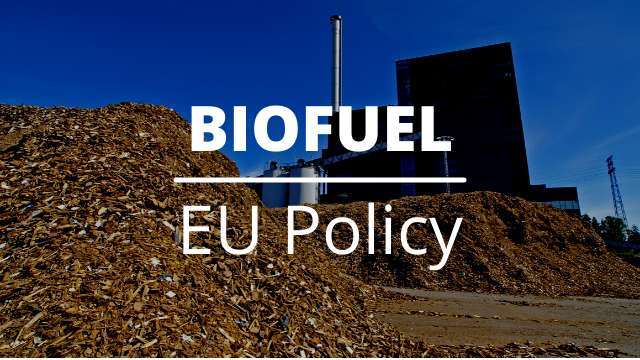Biomass
Biomass is derived from organic material such as trees, plants, and agricultural and urban waste. It can be used for heating, electricity generation, and transport fuels. Increasing the use of biomass in the EU can help diversify Europe's energy supply, create growth and jobs, and lower greenhouse gas emissions. In 2012, biomass and waste accounted for about two-thirds of all renewable energy consumption in the EU.
Sustainable biomass
For biomass to be effective at reducing greenhouse gas emissions, it must be produced in a sustainable way. Biomass production involves a chain of activities ranging from the growing of feedstock to final energy conversion. Each step along the way can pose different sustainability challenges that need to be managed.
Proposal for updated sustainability criteria for biofuels, bioliquids and biomass fuelsThe Commission's November 2016 proposal for a revised Renewable Energy Directive includes updated sustainability criteria for biofuels used in transport and bioliquids, and solid and gaseous biomass fuels used for heat and power. Annexes V and VI include updated greenhouse gas emission accounting rules and default values.
Technical background studies for the preparation of the Impact Assessment on the Sustainability of Bioenergy:
- Joint Research Centre report with the input values for calculating the greenhouse gas emission savings of solid and gaseous biomass fuels and Database
- Study on the sustainable and optimal use of biomass for energy in the EU beyond 2020
Sustainability report
tIn 2014, the European Commission published a report on the sustainability of solid and gaseous biomass for heat and electricity generation. The report includes information on current and planned EU actions to maximise the benefits of using biomass while avoiding negative impacts on the environment.
- State of play on the sustainability of solid and gaseous biomass used for electricity, heating and cooling in the EU [SWD (2014)259]
- Joint Research Centre scientific report on the default and input values for greenhouse gas emissions of biomass
- Review of literature on biogenic carbon and lifecycle assessment of forest bioenergy (conducted by Forest Research)
Sustainability criteria
The European Commission has issued non-binding recommendations on sustainability criteria for biomass. These recommendations are meant to apply to energy installations of at least 1MW thermal heat or electrical power. They:
- forbid the use of biomass from land converted from forest, and other high carbon stock areas, as well as highly biodiverse areas
- ensure that biofuels emit at least 35% less greenhouse gases over their lifecycle (cultivation, processing, transport, etc.) when compared to fossil fuels. For new installations this amount rises to 50% in 2017 and 60% in 2018
- favour national biofuels support schemes for highly efficient installations
- encourage the monitoring of the origin of all biomass consumed in the EU to ensure their sustainability
Related documents on Sustainability criteria
- Report on sustainability requirements for the use of solid and gaseous biomass sources in electricity, heating and cooling [COM/2010/11]
- Impact Assessment [SEC/2010/65]
- Summary of the Impact Assessment [SEC/2010/66]
Permitting procedures
One of the biggest difficulties facing biomass producers is getting the proper permits to build their installations. Problems include:
- too many process steps and permits issued by separate authorities
- permits are subject to a wide range of legislative acts
- a lack of clear timetables
- a lack of local knowledge and capacity to analyse complex bioenergy permit applications
- a lack of clear procedures to obtain energy grid access
- local resistance to bioenergy projects
To improve the situation, the EU released a series of practical recommendations aimed at helping project developers, NGOs, and permitting authorities.



